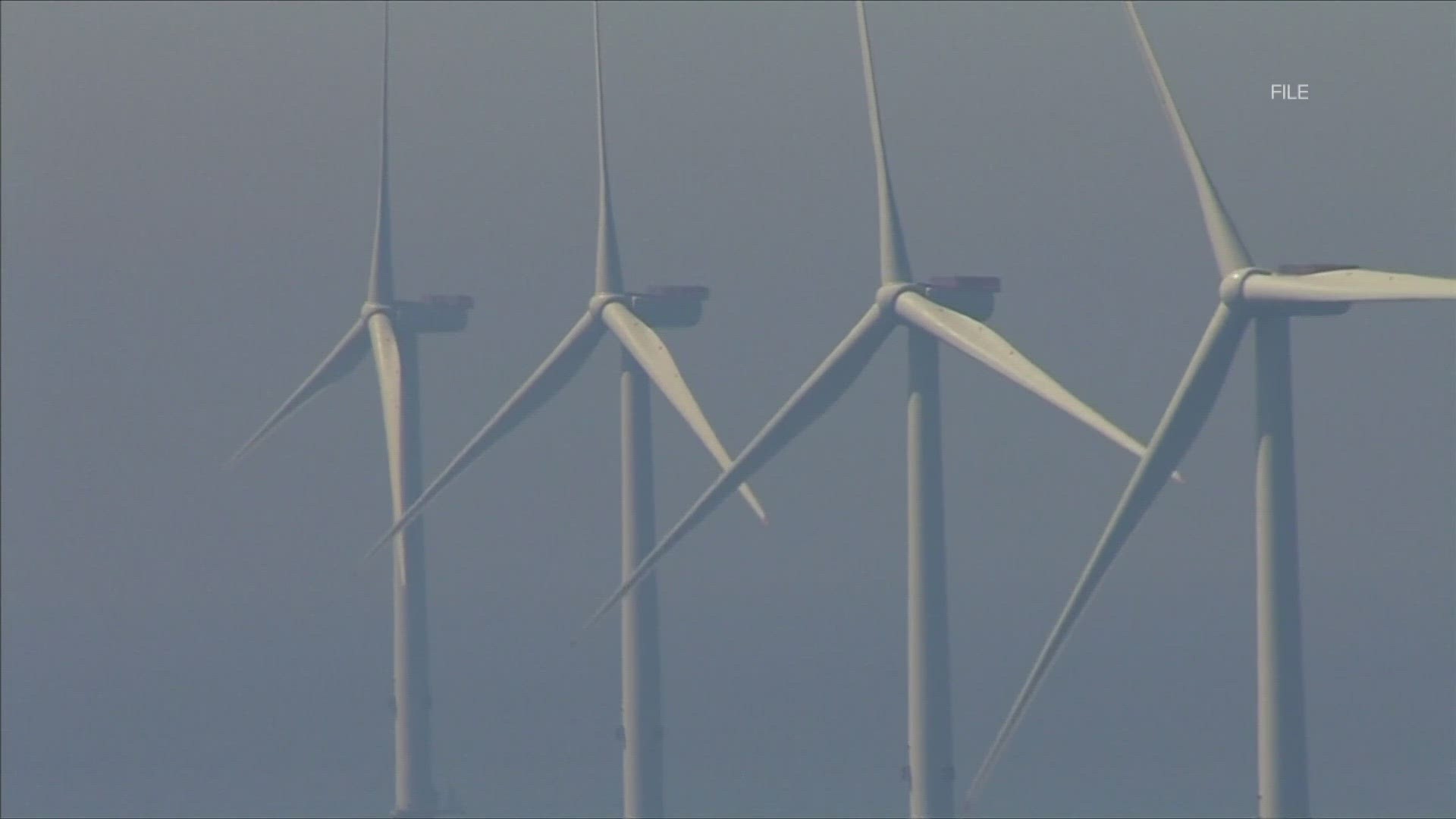PORTLAND, Maine —
“Climate change is really the biggest threat to Maine’s woods and waters, our wildlife, our coastal communities. I think what we’ve just experienced in Maine the past month or so is evidence there," Jack Shapiro, climate and clean energy director for the Natural Resources Council of Maine, told NEWS CENTER Maine
Shapiro said we can’t wait any longer to come together and develop renewable energy while ridding Maine of reliance on fossil fuels.
Shapiro said offshore wind will create plenty of energy for the future.
“Offshore wind, because the wind is so much stronger and more consistent offshore, is going to generate a ton of the energy that we need," he explained. "Almost half of the electricity needs we’re going to have by 2040."
But we can’t wait 20 years to take action. Representatives from 19 organizations and towns took part in the offshore wind port discussion. Francis Eanes, executive director of the Maine Labor Climate Council, is one of the people who provided input for the offshore wind port early engagement group.
“We’re seeing the impacts of a changing climate around us every single day, and working people in Maine understand that when we have 20 feet of excess water going down the Androscoggin flooding businesses and homes that it is here, it is upon us, the climate crisis is real," Eanes said. "And the question is, how are we going to respond? How are we going to shape solutions that work for working people and working Mainers?"
Shapiro said the goal is to keep the benefits in Maine. He said it’s a better proposition than doing nothing and having out-of-state companies reap the rewards.
“If we can build that in Maine using Maine technology, Maine workers, at a Maine port, it can have huge benefits for our state," he said.
Nearly every participant in the offshore wind port advisory group said “no build” is not an option because Maine can’t afford to wait.
“The other sense of urgency is that the federal government has made floating offshore wind a strategic priority, so that ship is moving. That train has left the station," Eanes said. "And the question is, can we come together as Mainers, as organizations, and shape that process in a way that works for our state and maximizes the benefits and minimizes the impacts that any new industry would have on our state?"
The offshore wind port group did not make decisions regarding the location and operation of the port.
In the coming months, NEWS CENTER Maine plans to speak with the Maine Audubon about the potential impacts on wildlife and wildlife habitat this project could have.
You can read the advisory group’s comments about the offshore wind port’s early engagement by clicking HERE.

